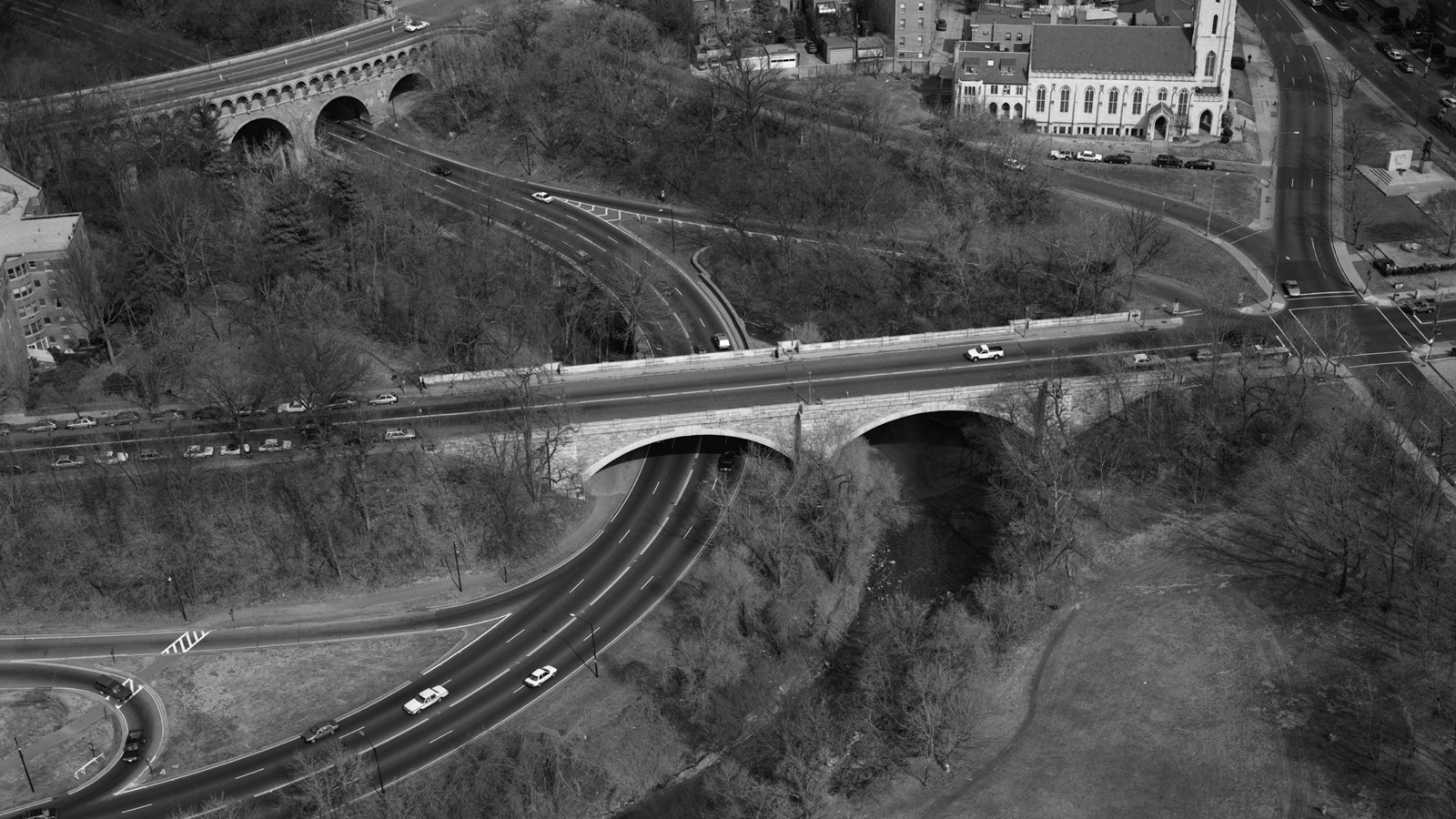Last updated: February 14, 2025
Place
P Street Beach and Black Forest

NPS
In the latter part of the 20th century, P Street Beach along the Rock Creek and Potomac Parkway became a treasured queer space in Washington, DC. Among the LGB community particularly, the beach was a popular place for sunbathing, and in the 1960s and 1970s it became an ideal spot for informal concerts. In 1972, it was the location of DC’s first unofficial Pride celebration. The official celebrations began here in 1975.
This queer gathering space expanded beyond P Street Beach into a wooded hillside locally known as the Black Forest. At night, the Black Forest was a popular cruising spot where gay men would seek others looking for physical intimacy and/or romance. While gay private spaces like bars and drag balls increased following WWII, secrecy about one’s homosexuality in DC was still crucial to protect their livelihood until 1975 when the US Civil Service Commission ended the ban that prohibited homosexuals from working for the federal government. Even after this change, parks like Rock Creek Park, particularly P Street Beach and Meridian Hill, continued to provide a more secluded and discreet public place for gay people looking for intimacy. According to local gay oral histories, many admitted that parks were more convenient and affordable cruising options compared to bars and theaters.
In the 1970s, the Morals Division of the Metropolitan Police Department began policing the area more aggressively as part of a citywide assault on queer places. The issue was well-documented in the Gay Blade (also known as the Blade or the Washington Blade), a premier newspaper of the LGB community in DC. Reports informed its readers in August 1970 that police harassment had made the P Street Beach and Black Forest “highly dangerous." This continued for over a decade until the mid-1980s, when US Park Police established a liaison and attempted to build a working relationship with the LGB community. Officially, Metropolitan and Park Police became allies with the LGB community to prevent increasing crimes believed to be anti-gay attacks.
Reflection Question:
What space in your community needs more documentation? Look through your phone – do you have photos you should preserve? Save them to your LGB history tour album and send them to a fellow community member.
